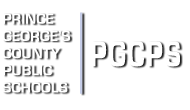Today is International day to end impunity.
The International Day to End Impunity (IDEI) is marked annually on 23 November by advocates for free expression. A group of United Nations independent human rights experts, today called on the UN to adopt a more central role in the fight against impunity, and urged Member States to give more support to and strengthen on-going efforts to secure accountability and justice for human rights violations, including serious crimes.
“Ending impunity requires greater scrutiny, prosecution and punishment, and no other international institution is better placed than the United Nations to effectively contribute to this goal,” they stressed. “It is time for the UN to take a more decisive role in combating impunity and focus on all dimensions of the problem, including the erosion of the rule of law and the violation of general principles of justice.” Here in Prince George’s County and the larger Maryland as a state, the calls for ending impunity in this ancient old land is an important step forward. We must never surrender until the issues we have advocated for in the last several years within our county and especially the school system are resolved.
Welcoming civil society’s initiative to commemorate 23 November as an annual International Day to End Impunity, the human rights experts recalled that the Heads of State and Government pledged to ensure that impunity for serious violations of international human rights and humanitarian law is not tolerated, and that such violations are properly investigated, prosecuted and sanctioned, as stated in the UN Declaration on the rule of law adopted on 24 September 2012.
The experts recalled that States are required to hold accountable those who fail to protect and prevent, as well as those who perpetrate, violations of human rights, including the rights of women and other groups at risk. “Fighting against impunity implies not only the obligation of States to investigate violations and take appropriate measures in respect of the perpetrators and the victims, but also to ensure the inalienable right to know the truth about violations and take other necessary steps to prevent their recurrence”, they added.
“Efforts to address impunity must demand transparency and accountability of all State and non-State actors, including not only paramilitary forces, mercenaries, private military companies and terrorists, but also transnational corporations,” they said.
“The goal of ending impunity does not aim at revenge but at justice,” the independent experts underscored. “It requires objectivity and non-selectivity in identifying abuses that have not been redressed.”
“Addressing the challenge of impunity is not the one-way street of victor’s justice and the punishment of the guilty among the vanquished,” they said. “The solution must be found in equal application of the law and the commitment to obtain an accounting by the powerful and the weak alike.”
The human rights experts noted that the fight against impunity requires Governments to ensure access to justice for all, to proactively make information available to all and to refrain from using national security, immunities or any other measures to cloak criminal behavior.
“Universal access to diverse and reliable information, effective domestic justice systems, the globalization of the jurisdiction of the International Criminal Court and the practical realization of the right to truth are necessary conditions to do away with impunity,” they concluded. >>> Read more
###
OPINION:
Many definitions of corruption have been advanced, none fully satisfactory and comprehensive. Although it may be difficult to define corruption precisely, it is generally not hard to recognize. The World Bank settled on a straightforward definition—the abuse of public office for private gain. This definition is not original, but it was chosen because it is concise and broad enough to include most forms of corruption that the Bank encounters, as well as being widely used in the literature.
Corruption is a complex phenomenon. Its roots lie deep in bureaucratic and political institutions, and its effect on development varies with country, state or County conditions. But while costs may vary and systemic corruption may coexist with strong economic performance, experience suggests that corruption is one of the most severe impediments to development and growth in emerging and transition economies.
All over the world, Corruption violates the public trust and corrodes social capital. A small side payment to obtain or speed up a government service may seem a minor offense, but it is not the only cost. Unchecked, the creeping accumulation of seemingly minor infractions can slowly erode political legitimacy to the point where even non corrupt officials and members of the public see little point in playing by the rules. Credibility, once lost by the state, is very difficult to regain. As we move towards to the future here in Prince George’s County, leadership must ensure to uphold the rule of law and avoid situations which have been developing in the last several months now under the current leadership. We must say “NO” to select few who are trying to mismanage rare resources under our watch.
C = M + D -A
where:
C (corruption) = M (monopoly) + D (discretion) – A (accountability)
###



